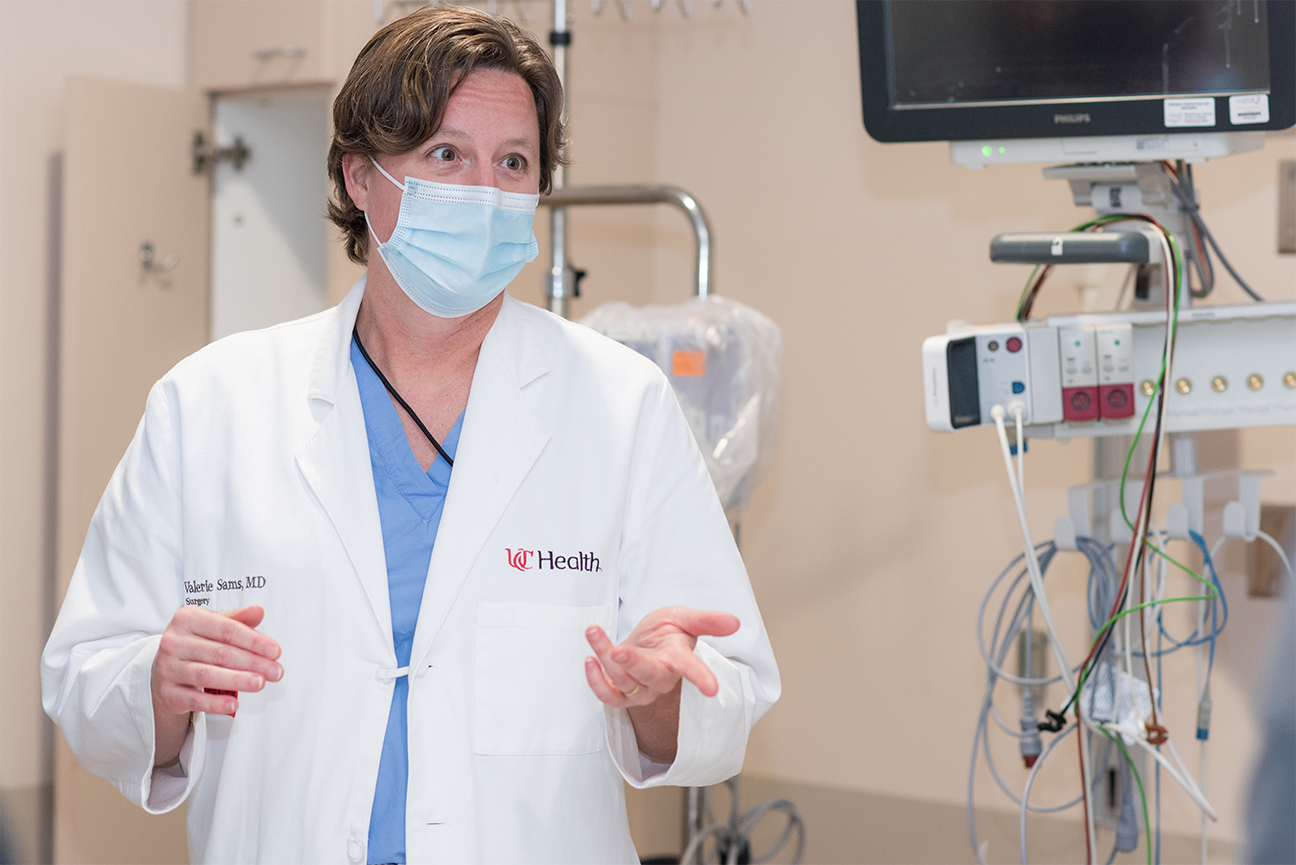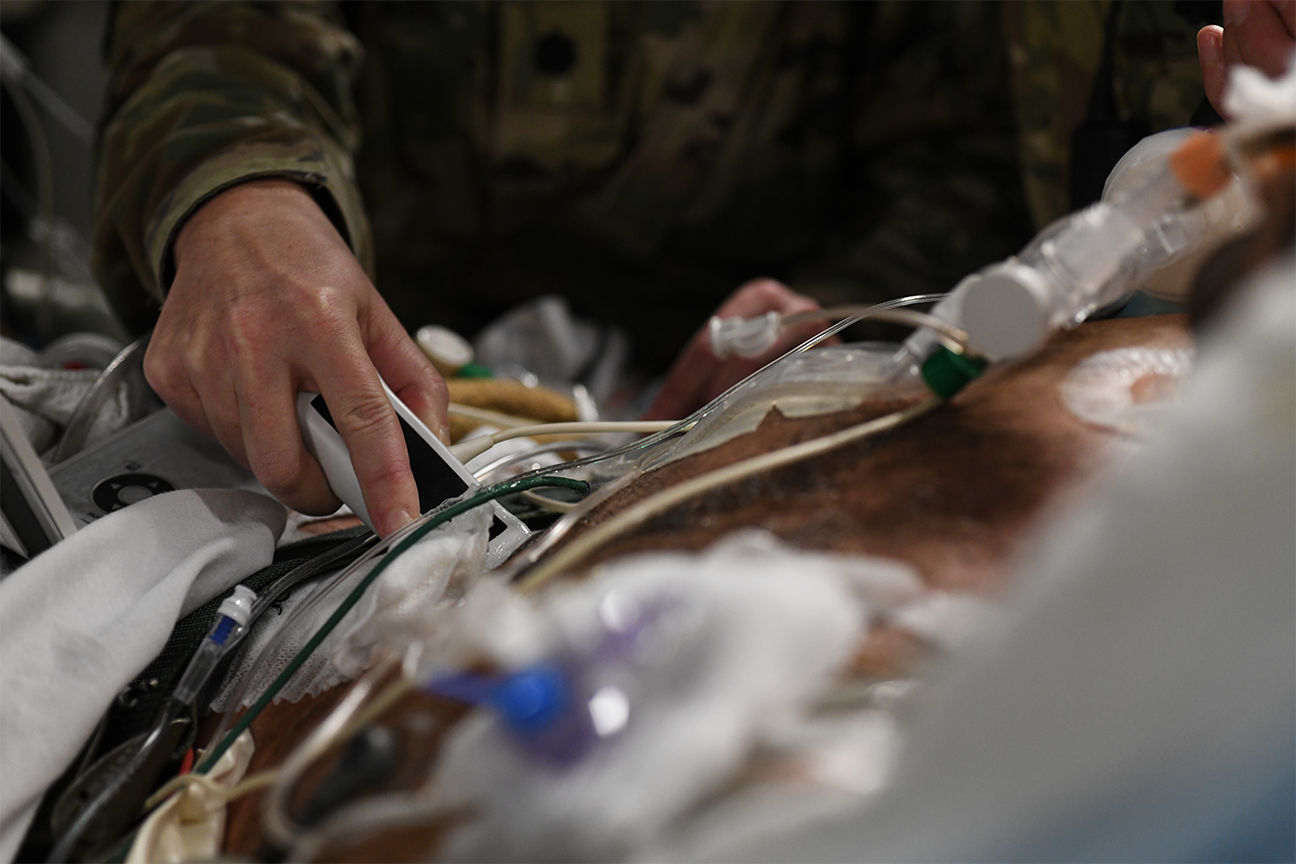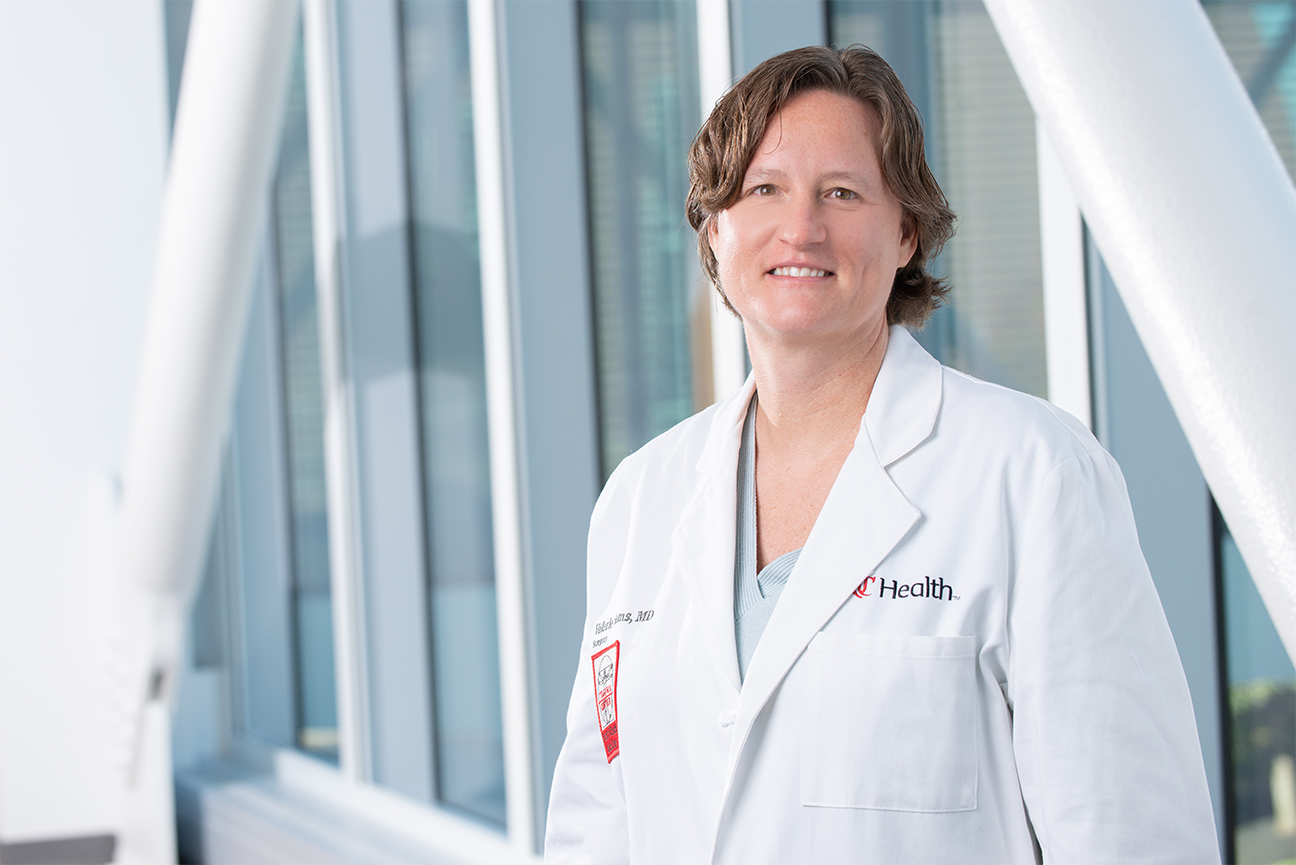FALLS CHURCH, Va. — On January 2nd, when many football fans were watching the game between the Buffalo Bills and the Cincinnati Bengals, Lt. Col. Valerie Sams, an Air Force surgeon, was on call at UC Health’s University of Cincinnati Medical Center not knowing what she was about to face.
That night, Buffalo Bills’ safety, Damar Hamlin’s heart stopped during the game and he was immediately rushed to the hospital and directly into Sams’ care. Relying on her experience and extensive training, Sams worked with her UC Medical Center colleagues to care for Hamlin during his time in the hospital’s Surgical Intensive Care Unit.
“We have taken care of a lot of patients in the military similar to Damar Hamlin, and it is just a basic skill set in critical care,” said Sams. “Working seamlessly with our UC Health colleagues to save a life only highlights what we can do for anyone. We have the capabilities in this hospital to deliver the best care to anyone that comes through these doors. Everyone from the cardiology team to the trauma team all came together for Mr. Hamlin. It was truly a remarkable experience to see different medical teams come together and save a life.”
While Sams is an active duty Air Force surgeon and assigned to the U.S. Air Force School of Aerospace Medicine, she currently dons a white coat with the UC Health logo and looks like every provider at the hospital. As the director and member of the Center for Sustainment of Trauma and Readiness Skills, or C-STARS, program at Cincinnati, she is part of a small group of Air Force medics that are fully integrated into UC Health who also train Air Force medics attending the advanced Critical Care Air Transport, or CCAT, training course.

Lt. Col. Valerie Sams, director of the Center for Sustainment of Trauma and Readiness Skills, or C-STARS, program in Cincinnati, poses for a photo at the University of Cincinnati Medical Center in Cincinnati, Ohio on Jan. 31, 2023. Sams was the surgeon on call the evening Buffalo Bills’ safety, Damar Hamlin, was admitted when his heart stopped during the game on Jan. 2, 2023. (Courtesy photo by the University of Cincinnati Medical Center)
“Our partnership with UC Health provides us a unique opportunity to keep our CCAT training cadre clinically current and competent to ensure they can deliver specialized en route care when called upon,” said Sams. “UC Health has given us the privilege to host our simulations and training, be fully integrated into their staff, and be able to learn advanced critical and trauma care with our civilian counterparts.”
To understand how Sam was the responding physician in the Emergency Room when Damar Hamlin was admitted requires a brief look at Sams’ 23-year non-linear Air Force and medical career.
“I always knew I wanted to join the military and I ended up in a junior [Reserve Officer Training Corps] in my senior year of high school,” said Sams. “I was able to get a full scholarship for college, transition from enlisted Army to Air Force ROTC and got commissioned.”
Sams originally became active duty with the Air Force as a logistics officer. She later continued in the logistics field as an Air Force Reservist in Air Force Reserve Command’s Individual Mobilization Augmentee program. It was during her time as a reservist that Sams attended medical school and her residency. After Sams finished her general surgery residency as a civilian, she transitioned to active duty and pursued a trauma fellowship at Brooke Army Medical Center, or BAMC, in San Antonio, Texas.
For Sams, her time at BAMC gave her a diverse amount of trauma and critical care experience in particular her hands on experience with ECMO. ECMO, or extracorporeal membrane oxygenation, is a process that circulates blood through a machine to remove carbon dioxide and adds oxygen back to the body. ECMO is a life-saving procedure used in hospitals and during aeromedical evacuations of critically ill and injured patients.

Lt. Col. Valerie Sams, 59th Medical Wing trauma surgeon, performs an ultrasound to monitor a patient during a 20-hour direct flight from Bagram Airfield, Afghanistan to San Antonio, Texas, Aug. 18, 2019. This unique aerial mission providing around-the-clock patient care was refueled twice in-air, supported by multiple pilots, aircrew and joint service teams of medics working in shifts to maintain the highest level of care possible. (U.S. Air Force photo by Airman 1st Class Ryan Mancuso)
“I was afforded opportunities to attend civilian training while also working to develop a course for military medics at BAMC and help credential ECMO providers,” said Sams. “I also received training on continual renal replacement therapy, which is a skill set that not a lot of intensivists maintain, but one that is important to ECMO teams since it is a common accompanying therapy we would provide.”
While at BAMC, Sams helped build the ground surgical team course curriculum and trained the first group. She also has received the training necessary to be part of a CCAT team. All that training and readiness set her up for some of the most challenging points of her career -two deployments to Afghanistan as a trauma surgeon with multiple ECMO missions.
“My whole goal as an Air Force trauma surgeon is to take care of those who put themselves in harm’s way for our nation,” said Sams. “For me, deployments are massive learning experiences, and it is also incredibly humbling ones.”
Shortly after returning from her second deployment in August 2019, Sams was giving a lecture at a training site in San Antonio, Texas, when her pager kept going off. The ECMO Director needed her to help transport a Soldier from Afghanistan to San Antonio, in an unprecedented, non-stop 8,000 mile flight through a combat zone, while carrying a critical patient whose injuries that added altitude restrictions. The solider was cared for by an aeromedical evacuation, CCAT and ECMO teams.
“At the time, I was the only trauma surgeon on the ECMO team, so I quickly packed up and went,” said Sams “While the soldier did not require ECMO, he did require dialysis the whole flight back, which is common for ECMO patients and something we were prepared to do.”
Sams stayed at BAMC until 2023 where she took over as C-STARS Cincinnati director on January 1. Sams attributes the success of that mission on the extensive training Air Force medics are afforded the importance of relying on the whole team.

Lt. Col. Valerie Sams, director of the Center for Sustainment of Trauma and Readiness Skills, or C-STARS, program in Cincinnati, poses for a photo at the University of Cincinnati Medical Center in Cincinnati, Ohio on Jan. 31, 2023. Sams was the surgeon on call the evening Buffalo Bills’ safety, Damar Hamlin, was admitted when his heart stopped during the game on Jan. 2, 2023. (Courtesy photo by the University of Cincinnati Medical Center)
“My training as a trauma surgeon and having been deployed, I have seen all aspects of our teams, deployed capabilities and what we can do,” said Sams. “I had familiarity to all the components that lead up to that mission – the walking blood banks, the damage control surgery. When I give talks about damage control surgery or resuscitation, I always talk about how it takes every member of the team. Our medics do understand the importance of developing teams that can deal with multiple casualties at a time, that can organize everyone’s skill sets and ensure we can do the most we can with our capabilities.”
From Damar Hamlin to the 8,000-mile aeromedical evacuation mission, Sams stresses the importance of always maintaining her vital skill sets and remaining current, something that shapes her as the C-STARS Cincinnati director.
“Those two events in my life have been successful because I have been given the opportunity to stay clinically current,” said Sams. “The job we have as military medics requires us to make some important decisions pretty quickly to save a life, and you want them to be based on current skills and knowledge. We can’t afford to be rusty because there will be moments where you will not have time to get ramped up or have time to do research. We have to remain current and ready.”

